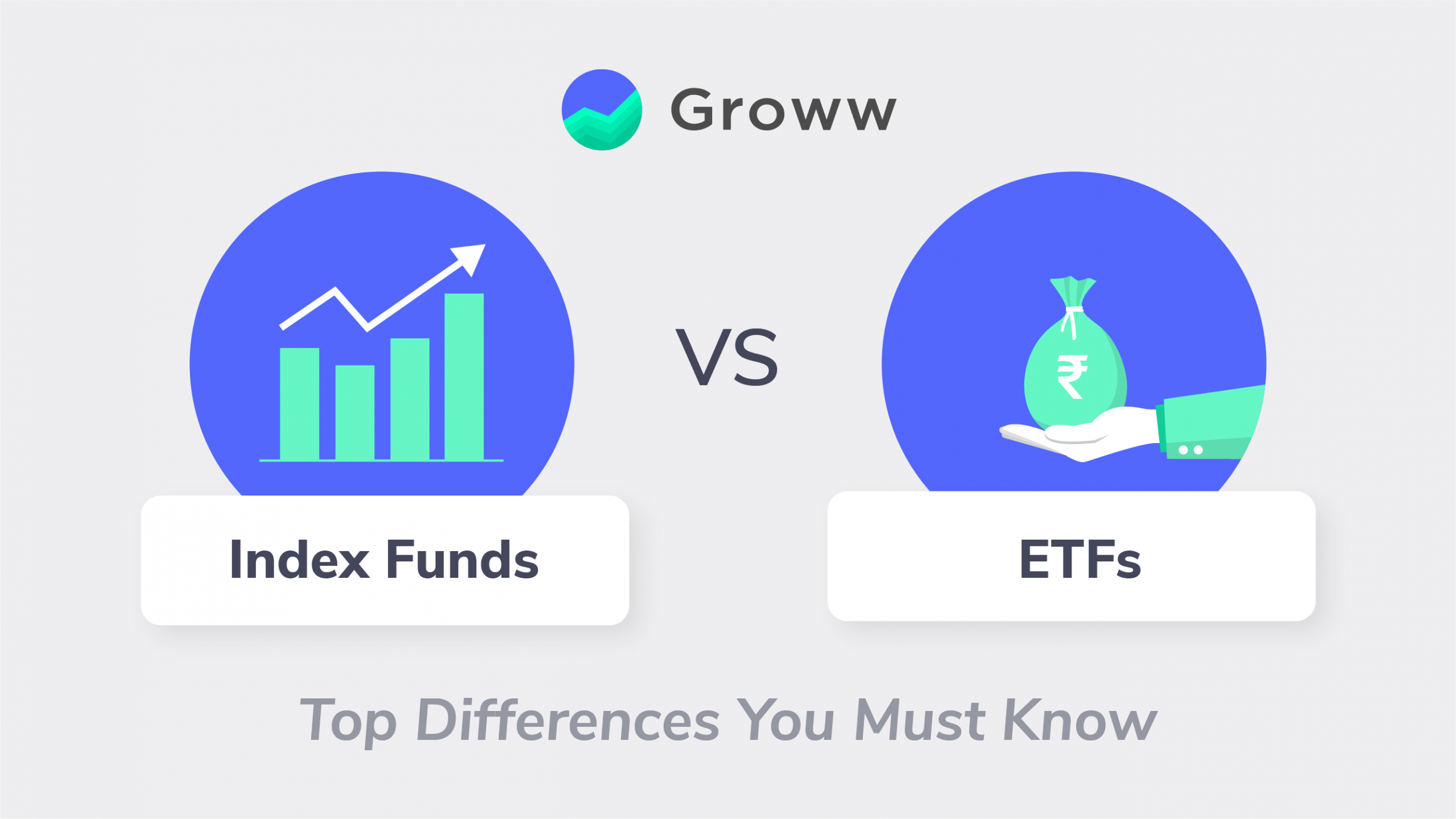Index Funds Vs ETFs : Top Differences You Must Know

In today's world, it's difficult for investors to find the time to look after their investments. They usually find ways to invest in passive investment streams, in which their money is managed by professional fund managers who invest and trade on their behalf.
Index Funds and ETFs (Exchange Traded Funds) are popular passive investment schemes where professional fund managers usually handle the investment.
Now you might be wondering what exactly is an Index Fund and an ETF? And which is the better option between index funds vs ETF?
In this blog, you will find the answers to these questions regarding the difference between index fund and ETF, so keep reading.
Index Funds
Index Funds are like Mutual Funds where the investment is made in securities and further diversified in shares, bonds, and commodities. However, these index funds mostly try to trade as per the popular indices such as NIFTY 50 or SENSEX 100.
Because of this, investors enjoy dual benefits of investing in risky shares with lower risk, as the index fund ensures that the investment does not fall from the benchmark, irrespective of market conditions.
Index Funds provide good returns with long-term wealth creation benefits, thus, gaining popularity as a convenient passive investment option for investors.
Characteristics of Index Funds
- An Index Fund is an open-ended mutual fund scheme where the investor can invest and redeem the investment at their convenience.
- Index Funds offer both growth and dividend options, which helps the investor to choose their risk appetite for the investment.
- It is managed by fund managers who trade on behalf of the investor and ensure that there is minimum loss or no loss in the investment value with maximization of profit.
Index Funds charge higher management expense fees to pay the fund managers and the AMC charges, which can be costly for the investor.
You may also want to know, Why Should You Invest in Index Funds?
ETFs
ETFs or Exchange Traded Funds are funds that mostly trade in the intraday shares market and clock the profits at the end of the day. ETFs are highly transparent in nature, where investors get to know exactly where their investments are allocated.
Like Index Funds, ETFs are also affected by the share market, and these transactions take place on a real-time basis. Some examples of ETFs are industry ETF, bond ETF, currency ETF, commodity ETF, inverse ETF, etc.
Characteristics of ETFs
- ETFs have lower expense ratios but higher trading costs.
- Investors need to have a DEMAT account to invest in ETFs as they are traded exactly like the share market.
- Investors also earn dividend income on the basis of ETFs, which they can further reinvest in the share market.
- ETFs are entirely dependent on the liquidity of the share market, where bearish trends in the market can bring losses for the investor.
- Investors get daily intimation of the portfolio of their investment.
- In the same manner as index funds, an investor can invest and redeem their ETF investment at any time as per their convenience.
- Investors do not get growth options in ETFs in comparison to index funds, which provide growth options.
You may also want to read, Beginner's Guide to Investing in ETFs in India
Difference Between ETF vs Index Fund
Mentioned below are some of the key difference between etf and index fund based on various factors-
|
Particulars |
ETF |
Index Fund |
|
Requirement of DEMAT Account |
Trading in ETFs requires a DEMAT account. |
There is no requirement for a DEMAT account to trade in index funds. |
|
SIP Investment |
Investors cannot invest in ETFs through SIPs. |
Investors can invest in Index Funds through the SIPs lock-in period or until the child turns 18. |
|
Expense Ratio |
These have lower expense ratios than Index Funds. |
These have higher expense ratios than ETFs. |
|
Fund Management |
In comparison to Index Funds, ETFs provide flexible trading options. |
Index Funds are managed mainly by fund managers. |
|
Valuation of Funds |
The valuation of the funds is done continuously in an ETF. |
The valuation of Index Funds is done at the end of the day. |
Key Takeaways
- ETFs are known to be traded in mostly intraday shares via AMCs and can give higher profits.
- Index Funds are known to trade primarily in securities via AMCs and offer more security in investment.
- In comparison to index fund vs etf, ETFs are a much riskier form of investment than Index Funds.